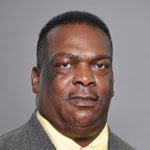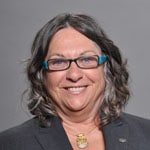Campus shuttle operators for the University of Tennessee’s transportation service chose the SMART Transportation Division as their collective bargaining representative in a representation election April 16.
Of the approximately 50 eligible voters, 26 voted for SMART, 10 voted for no union representation and 13 chose not to participate in the election
The operators transport students, faculty and staff throughout the 550-acre campus located in Knoxville, Tenn., and will provide rides to more than 814,000 passengers per year.
SMART Transportation Division Director of Organizing Rich Ross and Alternate Vice President – Bus Calvin Studivant spent nine days on the campus just prior to the vote, engaging operators in discussions about their needs and answering their questions.
The operators are employed by First Transit, Inc., based in Cincinnati, Ohio.
“The good news for this group of operators is that Calvin is close to finalizing an agreement for the First Transit group at Rutgers University that we organized in December and will be negotiating this contract with the same labor relations officer,” Ross said. “Hopefully, due to their familiarity, they can reach a mutually acceptable agreement quickly.”
Bus operators for Rutgers University’s inter-campus bus and shuttle system seeking union representation overwhelmingly chose the SMART Transportation Division Dec. 9 as their collective bargaining representative.
 The relationship between railroads and bus companies has a long history not known by many UTU members.
The relationship between railroads and bus companies has a long history not known by many UTU members.

 CHARLOTTE, N.C. – Members of UTU Local 1715 have ratified a new agreement with Charlotte Area Transit by a three-to-one margin.
CHARLOTTE, N.C. – Members of UTU Local 1715 have ratified a new agreement with Charlotte Area Transit by a three-to-one margin.